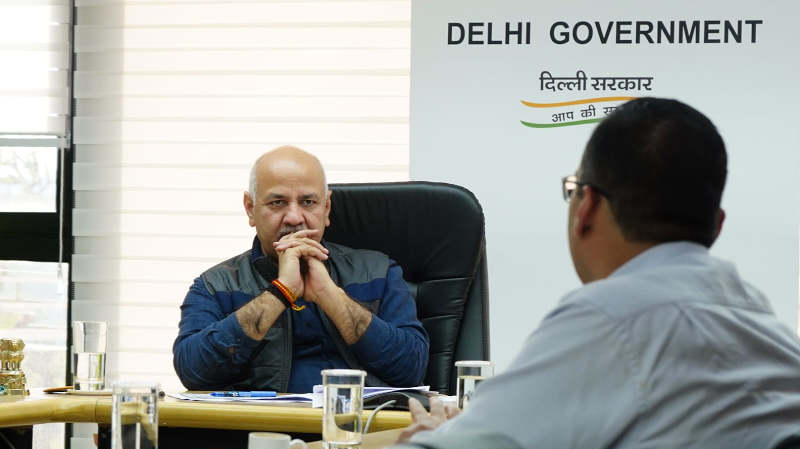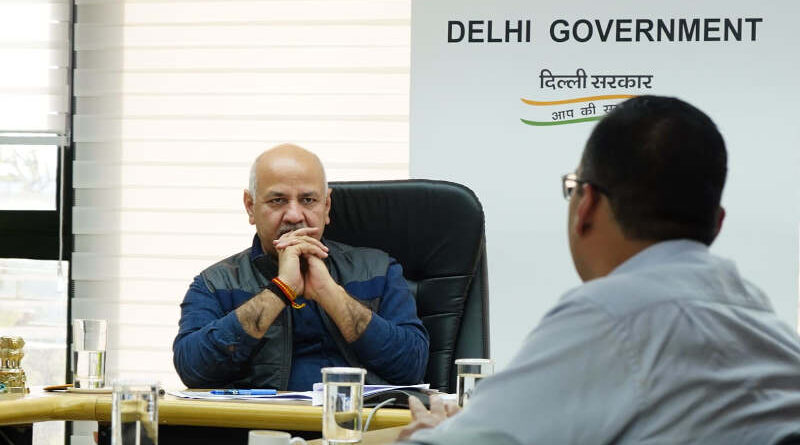Manish Sisodia Gets Bail, Arvind Kejriwal to Stay in Jail

Manish Sisodia Gets Bail, Arvind Kejriwal to Stay in Jail
As the Indian courts subtly extend favours to top politicians and influential persons, a bail to the accused means their virtual acquittal.
By Rakesh Raman
A former deputy chief minister and Aam Aadmi Party (AAP) politician Manish Sisodia has been granted bail by the Supreme Court in the Delhi liquor scandal case.
In its order of today (August 9), the top court granted regular bail to Sisodia in liquor scam cases being probed by the Central Bureau of Investigation (CBI) and the Enforcement Directorate (ED).
Sisodia spent almost 17 months in jail, as the CBI had arrested him on February 26, 2023 and after a couple of weeks the ED arrested him in the same Delhi liquor policy case.
The Supreme Court bench of Justices B. R. Gavai and K. V. Viswanathan blamed the investigating agencies which failed to conduct a speedy trial in the case. The court observed that Sisodia cannot be kept in jail indefinitely.
However, the CBI and the ED contended that the delay in the trial was because of Sisodia who was filing frivolous applications frequently in courts while the agencies had to respond to those applications instead of beginning the trial.
As the Indian courts subtly extend favours to top politicians and influential persons, a bail to the accused means their virtual acquittal. Actually, Sisodia is neither acquitted nor convicted, but he is unlikely to go back to jail while the trial will keep happening at a tardy pace for years.
[ Video: दिल्ली शराब घोटाला मामले में मनीष सिसोदिया को कैसे मिली जमानत ]
The new “India Judicial Research Report 2024: Decline of the Indian Judiciary” explains the shady working of the Supreme Court, high courts, and lower courts. You can click here to download and read the full report.
Meanwhile, a Delhi court on August 8 extended the judicial custody of Delhi chief minister (CM) and Sisodia’s AAP colleague Arvind Kejriwal till August 20. Kejriwal has also been arrested and jailed in the excise policy corruption case registered by the CBI. Special Judge Kaveri Baweja extended Kejriwal’s custody after he was produced before the court through video conference.
Both Kejriwal and Sisodia do not pass the triple test for bail, but the court judges – who are usually influenced by some extraneous factors – have been giving bails to both these influential politicians.
The triple test or the tripod test (1. flight risk, 2. influencing witnesses, and 3. tampering with evidence) for bail expects the prisoner to satisfy the court that he / she will not flee the country, will not influence the witnesses, and will not tamper with the evidence.
However, it is alleged that Kejriwal and Sisodia have tampered with the evidence by destroying their mobile phones or not providing their access to the investigating agencies.
It is also alleged that they have tried to gain access to the documents related to the liquor policy and with their money and muscle power they can easily influence the witnesses linked with the liquor scam. Kejriwal considers himself so powerful that he defied the ED summonses repeatedly in this case.
Related Links
[ How Enforcement Directorate Failed to Present Kejriwal Case in Supreme Court ]
[ Why Courts Are Not Granting Bail to Arvind Kejriwal in Delhi Liquor Scam Case ]
But ignoring the triple test, the courts have granted bails to these AAP leaders who are squandering huge public money on some greedy lawyers for getting bail. Their cases are listed frequently in the Supreme Court, high court, and lower courts which have forgotten about the 5 crore (50 million) other cases which are pending in courts to favour the AAP leaders.
Although it is not required to show the transaction of bribe money in white-collar financial crimes such as Delhi liquor policy scam, the CBI and the ED claim that they have established the money trail in the courts. According to the CBI, it has traced the money trail in Kejriwal’s corruption case as he used Rs. 44 crore in the 2022 Goa election. Sisodia is also part of this gameplan.
Kejriwal was arrested on March 21 by the ED for his alleged involvement in the liquor policy scandal. Kejriwal was arrested and sent to Delhi’s Tihar jail after he defied nine summonses of ED which had been calling him for questioning in the money laundering crime linked with Delhi liquor policy scam.
But soon Kejriwal is also expected to be released on bail like Sisodia, as the courts either do not understand the law or do not want to apply the law in the cases of powerful people. Result: Travesty of justice.
By Rakesh Raman, who is a national award-winning journalist and social activist. He is the founder of a humanitarian organization RMN Foundation which is working in diverse areas to help the disadvantaged and distressed people in the society.





